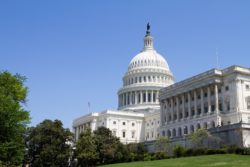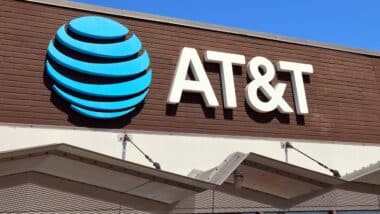
A recent measure introduced to the Senate would temporarily suspend overdraft fee charges for the duration of the COVID-19 pandemic.
Overdraft Fees May Be Suspended Due to COVID-19
Democratic Senators Cory Booker of New Jersey and Sherrod Brown of Ohio introduced the measure in late March, stating that millions of Americans have been laid off or been thrown into financial insecurity due to the unprecedented COVID-19 pandemic and that overdraft charges may disproportionately affect the people least able to afford them. The potential bill, called the Stop Overdraft Profiteering Act, would eliminate overdraft fees during the current pandemic, as well as during any future presidentially-declared emergencies. Additionally, the act would prohibit these fees for six months following the end of the emergency. Banks would also be prohibited from informing credit reporting agencies of any overdrafts made during emergencies.

Sen. Brown also released a statement about the measure, stating, “At the height of this pandemic, hardworking Americans should be protecting their health not worrying about big banks slapping them with fees for small overdraft amounts.”
Senators Booker and Brown have attempted to pass similar stand-alone bills attempting to limit the number of overdraft fees permitted to be assessed against a customer in a given time period, as well as capping the price of these fees. Although these previous bills did not advance, the current measure may gain more traction due to the pandemic. Several banks have already announced the suspension of overdraft fees due to the current outbreak. Other banks have stated that they will consider waiving these fees on a case-by-case basis.
About Overdraft Fees
Overdraft charges are fees assessed against a customer’s account when they attempt to make a purchase or transaction without having the necessary amount of money in their account. When this happens, the bank may cover the cost of the purchase by essentially giving the customer a loan. The bank will also assess a fee of between $20 and $40. Overdraft fees may be assessed for purchases made in-store or online, checks that bounce, or attempted ATM withdrawals.
These fees bring in billions of dollars in profits for banks every year, and may disproportionately affect people in vulnerable financial situations. People with low balance amounts in their accounts may be more likely to accidentally overdraft, leading to expensive fees and charges.
Additionally, many consumers claim that their banks and credit unions use confusing language in their policies regarding overdraft fees, making it difficult for customers to know whether they have opted in to overdraft coverage, and potential overdraft charges. Other consumers have claimed that their banks rearrange their transactions and process them out of chronological order, resulting in multiple overdraft fees stemming from the same transaction. According to a report from the Pew Charitable Trusts, more than 40 percent of the largest U.S. banks rearrange transactions in order to process them from largest to smallest, rather than processing them in the order they occurred. This rearranging may make it even more difficult for consumers to have advance warning that they may be in danger of overdrafting.
If you have been hit with unexpected or predatory overdraft fees, including being assessed multiple overdraft fees for the same transaction, you may be able to hire a qualified attorney to review your case. Some victims may be eligible to open an investigation or class action lawsuit regarding these fees, and may potentially receive reimbursement or additional compensation.
If you were charged overdraft fees or NSF fees by your bank or credit union that you believe are improper for any reason, the attorneys who work with Top Class Actions are ready to investigate these fees on your behalf.
Learn more by filling out the form on this page.
This article is not legal advice. It is presented
for informational purposes only.
ATTORNEY ADVERTISING
Top Class Actions is a Proud Member of the American Bar Association
LEGAL INFORMATION IS NOT LEGAL ADVICE
Top Class Actions Legal Statement
©2008 – 2026 Top Class Actions® LLC
Various Trademarks held by their respective owners
This website is not intended for viewing or usage by European Union citizens.
Get Help – It’s Free
Join a Free Bank Overdraft Fee Class Action Lawsuit Investigation
If your bank and credit union has engaged in deceptive overdraft fee practices, you may have a legal claim. Fill out the form on this page now to find out if you qualify!
An attorney will contact you if you qualify to discuss the details of your potential case.
PLEASE NOTE: If you want to participate in this investigation, it is imperative that you reply to the law firm if they call or email you. Failing to do so may result in you not getting signed up as a client or getting you dropped as a client.
In order to properly investigate overdraft fee claims, you may be required to disclose bank statements to overdraft fee attorneys. Please note that any such information will be kept private and confidential.












